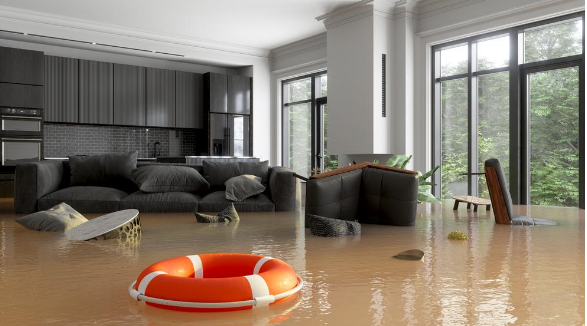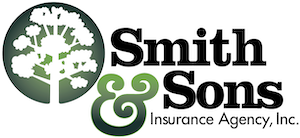Your homeowners insurance gives broad protection from costly losses, but not every incident is covered. Know what your insurer excludes and how to protect yourself from those events.

Standard homeowners policies cover damage or destruction of your home and its contents. They also offer personal liability coverage to protect you financially if someone is injured or their possessions are damaged or destroyed while on your property.
While homeowners insurance is very broad protection, it doesn’t cover everything. Let’s look at some losses that are usually excluded from coverage.
Exclusions you may have in your policy
An exclusion is a specific type of loss that is not covered by an insurance policy. You will not be reimbursed for any excluded losses. You’ll have to pay for the loss out of your own pocket, and these expenses will not count against your deductible.
Sometimes you can insure things that are excluded from your homeowners policy under another type of insurance. Your insurance professional can help you identify those options.
A homeowners policy typically covers damage caused by explosions, fires, lightning, hail, tornadoes, extreme cold and theft. However, certain disasters and incidents are frequently excluded. The most common of these are listed below.
Floods —All “flooding” is not the same. Water damage caused by burst pipes inside your home is typically covered by homeowners insurance, but water that rises from the ground is not. This includes water that enters your home from swollen creeks, rivers and other bodies of water, as well as drain and sewer backups. Rain that comes in from a storm is usually covered, while water due to a failed sump pump isn’t.
For water damage arising from noncovered events, you would need separate coverage. Sewer, drain and sump pump coverage can typically be added very affordably to your homeowners insurance.
For floodwaters, such as those due to overburdened bodies of water or public drainage systems, you would need flood insurance. This can be obtained through your insurance agent from either a government plan called the National Flood Insurance Program or a private insurance company. Each offers different levels of coverage, so choose a plan that fits your needs based on the value of your home and its contents.
Earthquakes and other ground movement —You’ll need to purchase a special policy to cover losses caused by earthquakes, landslides, mudflows or sinkholes. These are almost always listed as exclusions on homeowners policies. Only in Florida and Tennessee must insurers offer optional sinkhole protection.
Windstorms, hurricanes and wildfires —Losses caused by these events are often excluded from homeowners insurance policies in geographic areas where they are common. If you live in an area prone to these types of disasters, discuss the need for separate coverage with your insurance professional.
Mold — Mold damage is usually not covered by homeowners insurance. For coverage to apply, policies usually require the onset of mold to be sudden, accidental or caused by an incident already covered by another policy, such as flood or burst pipe insurance.
If you have a water damage event, you are expected to take immediate action to prevent mold growth. This includes using fans, sopping up standing water and taking other measures. In many cases, the insurer will reimburse you for the costs of drying the area out to prevent mold after a covered incident.
Wear and tear — You are expected to perform regular maintenance on your home. An insurance claim will be denied if the loss or liability is due to general wear and tear, or you have failed to perform basic repairs. For example, ceiling damage caused by a 20-year-old roof that leaks will not be covered, nor will water damage caused by a leaking pipe you failed to replace.
Infestations — It’s also your responsibility to prevent or address any damage caused by infestations such as bedbugs, termites or mice. The only possible exception would be if an infestation led to additional property damage covered by the main policy. For example, if an electrical fire were sparked by wires that were chewed through, that might be covered.
Acts of God or force majeure — Insurance companies often exclude events they define as either an “act of God” or a “force majeure.” Both terms describe unforeseeable, unpreventable events. Ask your agent to clarify what is included under the term if either is listed as an exclusion on your policy. Typical examples include losses that result from pandemics, wars, nuclear exposures, acts of terrorism or government actions.
Specific dog breeds — It’s not uncommon for insurance companies to completely deny liability coverage for injury or damage caused by specific breeds of dogs based on their aggressive nature. These breeds will be listed by name in the exclusion clause. Other insurance companies may allow coverage for a higher premium or require approval based on proof of the dog’s positive behavior history or completed training.
Vacant or unoccupied homes —Whether your home is completely vacant or you are simply not residing in it for an extended period of time, a loss that happens during one of these periods could be excluded. This is because the initial policy is written assuming someone will be living in the home, which can reduce risks overall or lead to quicker identification of an issue that could trigger a loss.
If you plan to be away from home for more than a month, check with your insurance professional to see if you should purchase vacant or unoccupied home coverage.
High-risk activities —Liability coverage included with typical homeowners policies is intended to cover typical risks, such as trips and falls, that happen on your property. Losses that result from more dangerous activities may be excluded. Your insurance professional can explain these specific exclusions, such as injuries that happen on trampolines or risks associated with pools or ponds.
Intentional or criminal acts — Any property damage you intentionally cause will be excluded, and you could be charged with insurance fraud if you attempt to file a related claim. Liability coverage will also be excluded if the incident is due to dishonest, intentionally harmful or illegal behavior on your part.
What to do if you find an exclusion on your policy?
While your homeowners insurance offers a substantial financial cushion should you have a costly loss, it’s wise to check all the exclusions. You may need to purchase additional protection for events that fall outside the standard coverage.
As previously mentioned, flood is a exclusion that many homeowners never knew was there. Flood damage to your home will not be covered by your homeowners insurance. The best thing to do, if you want this coverage, is to by a stand-alone flood insurance policy for your residential property.
Same thing goes for earthquake coverage. While most homeowners policies do not give coverage for earthquake damage, a stand-alone earthquake policy can easily be purchased.
In contrast, if you have a certain breed of dog, some companies will flat out decline to write your insurance. (THIS DOES NOT MEAN YOU SHOULD WITHHOLD THAT INFORMATION!) You can either get a policy that doesn’t cover dog bites, or a policy that is friendly towards all breed types.
Other exclusions are not so easy to address. For instance, there aren’t stand-alone policies for wear & tear losses. But you can do you best to prevent, repair or replace materials that have been worn down over time. This can sometimes be less expensive than paying for extra insurance coverages, and is nearly always less expensive than paying for a full loss out of your own pocket.
Don’t wait to find out the hard way!
An insurance professional who specializes in personal insurance can advise you on how to protect yourself from unexpected losses. We would be pleased to go over your current policy exclusions, whether a current customer or not. We exist to help people understand their insurance policies and coverages.
Give us a call today to set up a time to discuss your policies, or to ask us about something you found on your homeowners insurance.
(580) 353-0668
Schedule A Meeting
